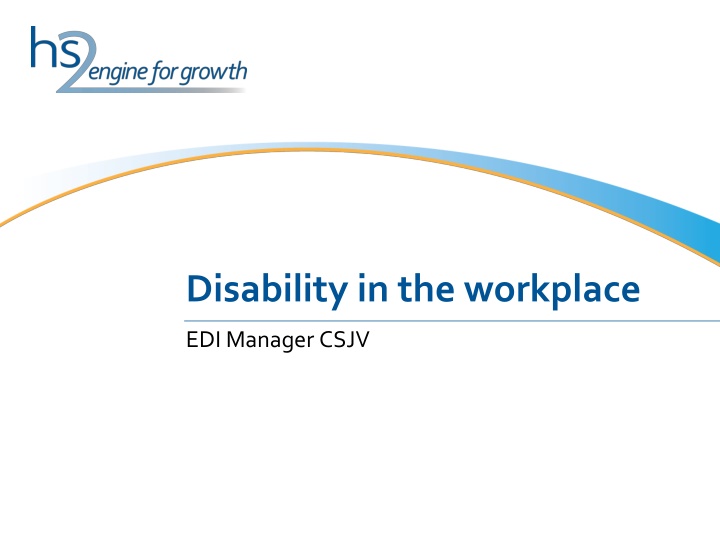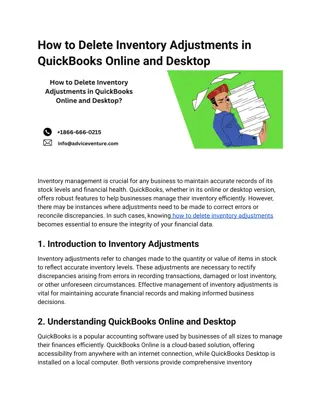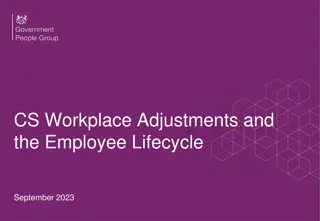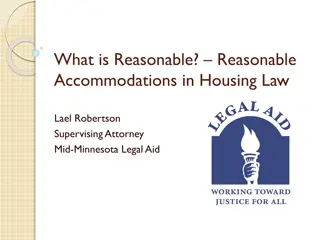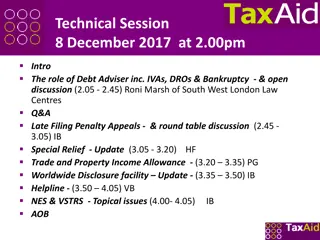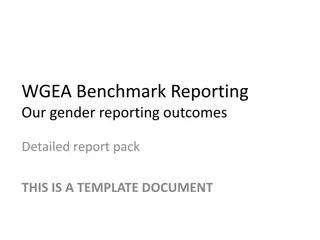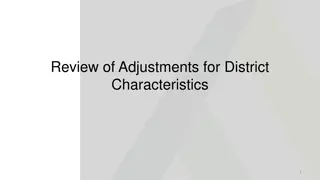Disability in the Workplace: Reasonable Adjustments and Equality Act 2010
This content discusses the importance of making reasonable adjustments in the workplace to accommodate individuals with disabilities, in accordance with the Equality Act 2010. It touches on types of discrimination, the need for reasonable adjustments, and understanding how to match disabilities with appropriate accommodations. The focus is on fostering inclusivity and ensuring equal opportunities for all employees.
Download Presentation

Please find below an Image/Link to download the presentation.
The content on the website is provided AS IS for your information and personal use only. It may not be sold, licensed, or shared on other websites without obtaining consent from the author.If you encounter any issues during the download, it is possible that the publisher has removed the file from their server.
You are allowed to download the files provided on this website for personal or commercial use, subject to the condition that they are used lawfully. All files are the property of their respective owners.
The content on the website is provided AS IS for your information and personal use only. It may not be sold, licensed, or shared on other websites without obtaining consent from the author.
E N D
Presentation Transcript
Disability in the workplace EDI Manager CSJV
Disability in the workplace - Disability in the UK - The Equality Act 2010 - Reasonable Adjustments - Disability in our workplace
Context: Disability in London 57% mobility impairment 38% stamina / breathing / fatigue impairment 28% dexterity impairment 16% mental health 4
The Equality Act 2010 Employers must not discriminate based on protected characteristics
Discrimination Direct discrimination treating one person worse than another because of a protected characteristic Indirect discrimination putting in place a rule or policy or way of doing things that has a worse impact on someone with a protected characteristic, when this is not objectively justified 7
Reasonable Adjustments Reasonable adjustment as far as is reasonable, a [disabled] person has the same access to everything that is involved in getting and doing a job as a non-disabled person. Adjustment for the recruitment process, and for the job itself. Reasonable adjustments requirements change over time. Not legally required to notify an employer of disability. 9
Your task Match the disability to the reasonable adjustment 10
What is reasonable? How effective is the change? How practical? Cost of the adjustment average is 184 Size of organisation 11
Disability in our workplace Recruitment - The employer should ask each applicant if they need any adjustments e.g. location or interview arrangements. - Applicants are unlikely to disclose their disability on pre-application forms. - It is the employers responsibility to ensure reasonable adjustments are available. - Reasonable adjustments for the role should be discussed with HR after an offer has been made. 12
Disability in our workplace Employees - The employer is responsible to arrange reasonable adjustments. - Disability is very broad: an individual may not define themselves as disabled. - The adjustment is to enable appraisal and assessment on equal basis to colleagues. - Review on a regular basis to ensure it is fit for purpose - keep a record. 13
